
This examination of the office of the German chancellorship as it has evolved under six post-war chancellors analyzes both the nature of executive leadership as institutionalized in the constitutional order or political system and the evolution of the office during the course of individual incumbencies. The distinguished contributors evaluate the "chancellor democracy" model rooted in the imperious incumbency of Konrad Adenauer, which postulates a concentration of executive authority around the chancellorship, and the model of "coordination democracy," which casts the chancellor in a more managerial role in a political system marked by the diffusion of authority. This volume traces a progression from the first model to the second over time.
German unification has thrust new roles on the chancellor, including one as a symbol of unity in an incomplete process of integration, and another as a key figure in redefining Germany's new national and international identity. A number of the contributors address the question of whether the office has the political resources to enable the incumbent to fill these new roles.
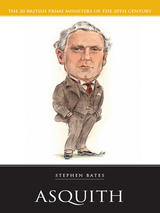
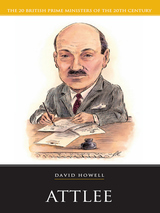
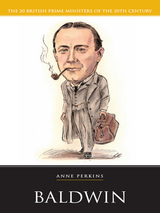
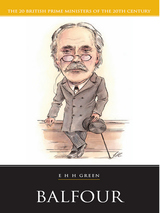
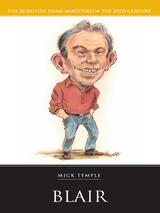
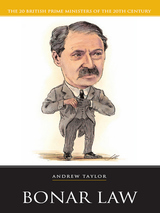

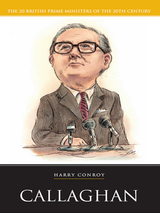

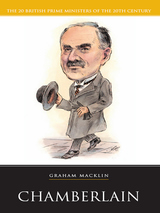
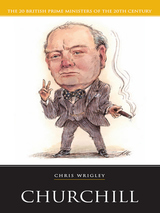

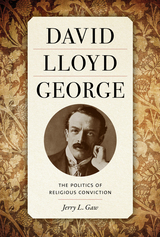
Born on January 17, 1863, in Manchester, England, David Lloyd George is perhaps best known for his service as prime minister of the United Kingdom during the second half of World War I. While many biographies have chronicled his life and political endeavors, few, if any, have explored how his devotion to democratic doctrines in the Church of Christ shaped his political perspectives and choices both before and during the First World War. In David Lloyd George: The Politics of Religious Conviction, Jerry L. Gaw bridges this gap in scholarship, showcasing George’s religious roots and their impact on his politics in the late nineteenth and early twentieth centuries.
With a comprehensive narrative that spans more than a century, Gaw’s book ranges beyond typical biography and examines how the work and theology of Alexander Campbell, a founder
of the Stone-Campbell Movement in America, influenced a prominent world leader. George’s twelve diaries and the more than three thousand letters he wrote to his brother between 1886 and 1943 provide the foundation for Gaw’s thorough analysis of George’s beliefs and politics. Taken together, these texts illuminate his lifelong adherence to the Church of Christ in Britain and how his faith, in turn, contributed to his proclivity for championing humanitarian, egalitarian, and popular political policies beginning with the first of his fifty-five years in the British Parliament.
Broadly, Gaw’s study helps us to understand how the Stone-Campbell tradition—and later, Churches of Christ—became contextualized in the British Isles over the course of the nineteenth century. His significant mining of primary materials successively reveals a lesser-known side of David Lloyd George, in large part explaining how he arrived at the political decisions that helped shape history.

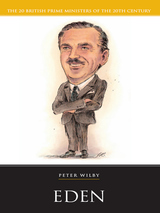

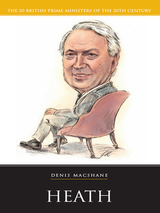

Despite the undeniable importance of Japan in world affairs, both politically and economically, the office of the Japanese prime minister has recieved far less attention from scholars than have the top political offices in other advanced industrialized democracies. This book is the first major systemic analysis of the Japanese prime minister’s role and influence in the policy process.
Kenji Hayao argues that the Japanese prime minister can play a major if not critical role in bringing about a change in policy. In Japan the prime minister’s style is different from what is considered usual for parliamentary leaders: rather than being strong and assertive, he tends to be reactive. How did the role develop in this way? If he is not a major initiator of policy change, how and under what conditions can the prime minister make his impact felt? Finally, what are the consequences of this rather weak leadership?
In answering these questions, Professor Hayao presents two case studies (educational reform and reform of the tax system) involving Nakasone Yasuhiro to see how he be became involved in the policy issues and how he affected the process. Hayao then examines a number of broad forces that seem important in explaining the prime minister’s role in the policy process: how a leader is chosen; his relationships with other important actors in the political system - the political parties and the subgovernments; and the structure of his “inner” staff and advisors.


Lee Kuan Yew, Singapore's first prime minister (from 1959 to1990), has been an international figure not only for establishing Singapore's political and economic stability but also for fostering economic development throughout Asia. He is particularly renowned as a principle architect of the 'Asian values' campaign of the 1990s, which sought to preserve the undemocratic traits of Asian culture while attending to the demands of a capitalist economy operating globally.
A critical examination of Lee's life, career, and ideas, this is the first book to analyze the origins and substance of Lee's political thought. Augmenting established primary sources with his own interviews and correspondence with Lee's old associates, Barr shows how Lee has been influenced by British and Chinese racism and elitism, western progressivism, and even the cultural evolutionism of Arnold Toynbee. This reassessment of Lee's achievements and worldview sheds new light on a key figure on the world stage.
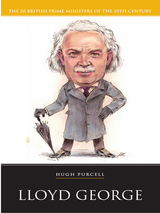

Less cynical than Talleyrand, more imaginative than Metternich, as creative as Guizot, Lord Liverpool was one of the great European conservatives of his age. He served as prime minister for the longest continuous term in nineteenth-century Britain and presided over the triumphant years of the Napoleonic War, the strife-torn era of the “Peterloo” massacre, and the founding of the great liberal free-trade revolution in financial and commercial policy that heralded Victorianism.
Norman Gash’s biography is the first modern reassessment of this misunderstood statesman. Gash places Liverpool within the kaleidoscopic parliamentary politics of the time and shows how he governed with the collective strength and unity of the cabinet. By offering parsimonious administration and enlightened economic policy, Liverpool hoped to preserve the old constitution and prevent both Catholic emancipation and parliamentary reform. Balancing interests and preserving order, Liverpool also contended with the vicissitudes of the still powerful monarchs—the aging and disturbed George III and the capricious and self-indulgent George IV, whose attempted divorce almost toppled the Liverpool administration.
This is not only an account of one of the most professional prime ministers of Great Britain, but also the story of the personal relations that shaped Lord Liverpool and the private life that gave him immense satisfaction. Based on correspondence and Lord Liverpool’s private papers, Gash’s work recasts the history of a turbulent age and its most prominent political figure.
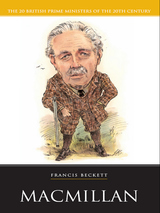
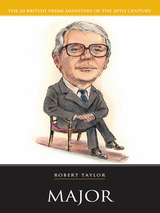
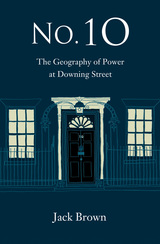
Written by Number 10’s first ever ‘Researcher in Residence,’ with unprecedented access to people and papers, No. 10: The Geography of Power at Downing Street sheds new light on unexplored aspects of Prime Ministers’ lives. Jack Brown tells the story of the intimately entwined relationships between the house and its post-war residents, telling how each occupant’s use and modification of the building reveals their own values and approaches to the office of Prime Minister. The book reveals how and why Prime Ministers have stamped their personalities and philosophies upon Number 10 and how the building has directly affected the ability of some Prime Ministers to perform the role. Both fascinating and extremely revealing, No. 10 offers an intimate account of British political power and the building at its core. It is essential reading for anyone interested in the nature and history of British politics.
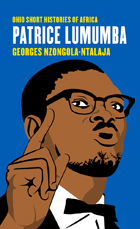
Patrice Lumumba was a leader of the independence struggle in what is today the Democratic Republic of the Congo, as well as the country’s first democratically elected prime minister. After a meteoric rise in the colonial civil service and the African political elite, he became a major figure in the decolonization movement of the 1950s. Lumumba’s short tenure as prime minister (1960–1961) was marked by an uncompromising defense of Congolese national interests against pressure from international mining companies and the Western governments that orchestrated his eventual demise.
Cold war geopolitical maneuvering and well-coordinated efforts by Lumumba’s domestic adversaries culminated in his assassination at the age of thirty-five, with the support or at least the tacit complicity of the U.S. and Belgian governments, the CIA, and the UN Secretariat. Even decades after Lumumba’s death, his personal integrity and unyielding dedication to the ideals of self-determination, self-reliance, and pan-African solidarity assure him a prominent place among the heroes of the twentieth-century African independence movement and the worldwide African diaspora.
Georges Nzongola-Ntalaja’s short and concise book provides a contemporary analysis of Lumumba’s life and work, examining both his strengths and his weaknesses as a political leader. It also surveys the national, continental, and international contexts of Lumumba’s political ascent and his swift elimination by the interests threatened by his ideas and practical reforms.
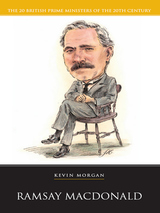
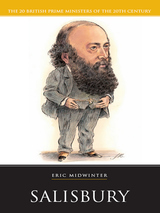
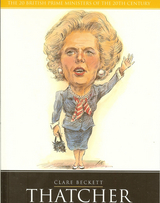
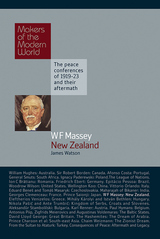
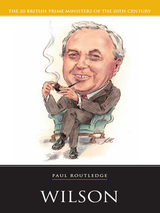

In 1946 Winston Churchill shook the world with his famous "Iron Curtain" speech on the campus of Westminster College in Fulton, Missouri, now the site of the Winston Churchill Memorial and Library. Inscribed on the pediment of his statue at the memorial is the epigraph from Churchill's History of the Second World War:
In War: Resolution
In Defeat: DefianceIn Victory: MagnanimityIn Peace: Good WillNo other words provide so poignant a summary of the principles that sustained Churchill's life's work.
Under the auspices of the Winston Churchill Memorial and Library, the Crosby Kemper Lectureship was established in 1979 by the Enid and Crosby Kemper Foundation of Kansas City, Missouri. Lectures have been delivered annually, or biennially, at the Winston Churchill Memorial and Library on the campus of Westminster College by authorities on British history and on Sir Winston Churchill. The essays included in this volume constitute the first dozen Crosby Kemper lectures, most by individuals who were personally acquainted with Churchill and all by individuals who had studied his life and his work.
Lord Robert Blake discusses Churchill's ambivalence toward the Conservative party during his political career. Philip S. Ziegler, Earl Mountbatten's biographer, examines whether Britain should have granted independence to India in 1947, taking as his departure Churchill's unequivocal belief that Britain's imperial rule there was a sacred trust not to be betrayed. Martin Gilbert, Churchill's biographer, carefully examines the origins of the Cold War and the famous Iron Curtain speech. Sir Michael Howard, Lovett Professor and Naval Historian at Yale University, further examines Churchill's role during the Cold War and the formulation of his "two-track" strategy that pushed for military strength while persistently striving for peace with the Soviets. Sir John Colville, Churchill's private secretary, ponders the extent to which great men are made by circumstances, citing Churchill's peccadilloes and strengths. Churchill's daughter Mary Soames and granddaughter, the sculptor Edwina Sandys, also give moving portraits of a much-loved family man.
All bring this illustrious leader to life in the process of interpreting his political actions, reviewing his historical contributions, and sharing anecdotes about his personal life.
READERS
Browse our collection.
PUBLISHERS
See BiblioVault's publisher services.
STUDENT SERVICES
Files for college accessibility offices.
UChicago Accessibility Resources
home | accessibility | search | about | contact us
BiblioVault ® 2001 - 2024
The University of Chicago Press









